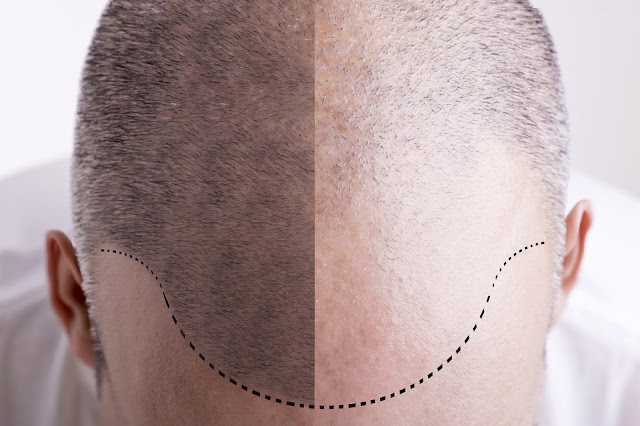6 Things You Can Do to Address Hair Loss
The hair on your scalp does more than just look good. It’s designed to offer insulation and cooling for your body while protecting your skin from damage. Thick, flourishing, shiny hair with a vibrant color is something that may men and women find attractive. However, there are some other simple reasons why we tend to find great hair appealing in a mate: It not only suggests good overall health and hygiene, but also that any potential offspring will also likely inherit these genes. Hair appears in a variety of colors and textures, but it’s up to us to do what we can to keep it vibrant and strong throughout our lifetime. Male or female pattern baldness, also referred to as androgenic alopecia, is a genetic and hormonal condition that is the most common cause of hair loss. It affects as many as two-thirds of American men by the age of 35, according to studies. Although there’s currently no cure for the condition, there are some ways of addressing hair loss to varying degrees, from identifying causes to replacing lost hair via NeoGraft hair restoration. Sonoma County’s Dr. Stanley Jacobs advises doing the following if you find that your hair is growing thinner:
1. Think About Your Diet
Poor nutrition is a common cause of shedding or loosening of the hair. As the hair follicles contain large amounts of a protein called keratin, a protein-rich diet is thought to be good for hair loss prevention, so eggs, chicken, fish, red meat, other types of meat, and vegetarian sources like nuts, peas, beans, and dairy products should be your go-to foods.
2. Multivitamins
As mentioned above, it’s important that we’re getting the right nutrients to keep our hair strong. Dietary supplements can be helpful, especially if your diet lacks some certain nutrients from food. Take vitamins A, C, D, and E, zinc, selenium, B vitamins, iron, and biotin to strengthen and repair your hair. One straightforward and convenient way of consuming the vitamins and minerals you need is by taking multivitamins. Ginseng supplements are also believed to be beneficial for hair growth.
3. Keep Your Stress Levels Under Control
High stress levels are believed to be linked to certain types of hair loss, as stress can cause an abrupt disruption to the normal hair growth cycle. Regular exercise, relaxation techniques like yoga and meditation, and allowing for leisure time and hobbies can help you cut down on your stress.
4. Give Your Hair Some Proper TLC
A lot of the things you do with your hair each day as part of your routine might be making hair loss worse. Every time you shampoo your hair, some of the natural oils are stripped away, so it’s better to avoid washing your hair every day. Even if your hair is short, if you’re overlooking conditioner, your hair isn’t getting the nutrients and oils it needs to keep it protected. The result is thinner, brittle hair that breaks more easily. Try not to brush too hard or use harsh treatments and protect your hair from sun damage.
5. Stop Smoking and Excess Drinking
Smoking and too much alcohol are habits that are believed to have a negative impact on your hair quality. Smoking cigarettes results in poor blood circulation, so the follicles aren’t being supplied with enough oxygen and nutrients. The pollution in the smoke-filled air also affects your hair badly. Since drinking causes dehydration and deficiencies of certain nutrients such as copper and zinc, your hair can become thinner and drier.
6. Be Proactive with Cosmetic Treatments
It’s easier to treat hair loss in its earlier stages. The FUE hair transplant method involves transferring some of the patient’s own hair follicles from denser areas on the scalp to thinning areas. Candidates must have enough hair left, preferably at the back of the head, to be transplanted. This technique is designed to give the patient a natural hairline and density.
Explore your options for hair restoration and other cosmetic procedures in the San Francisco Bay Area. To meet with The Jacobs Center for Cosmetic Surgery team in Sonoma County, which will soon be adding PRP treatments to their hair-growth regimens, call 707-473-0220 or fill out a contact form to set up a consultation.


Comments
Post a Comment